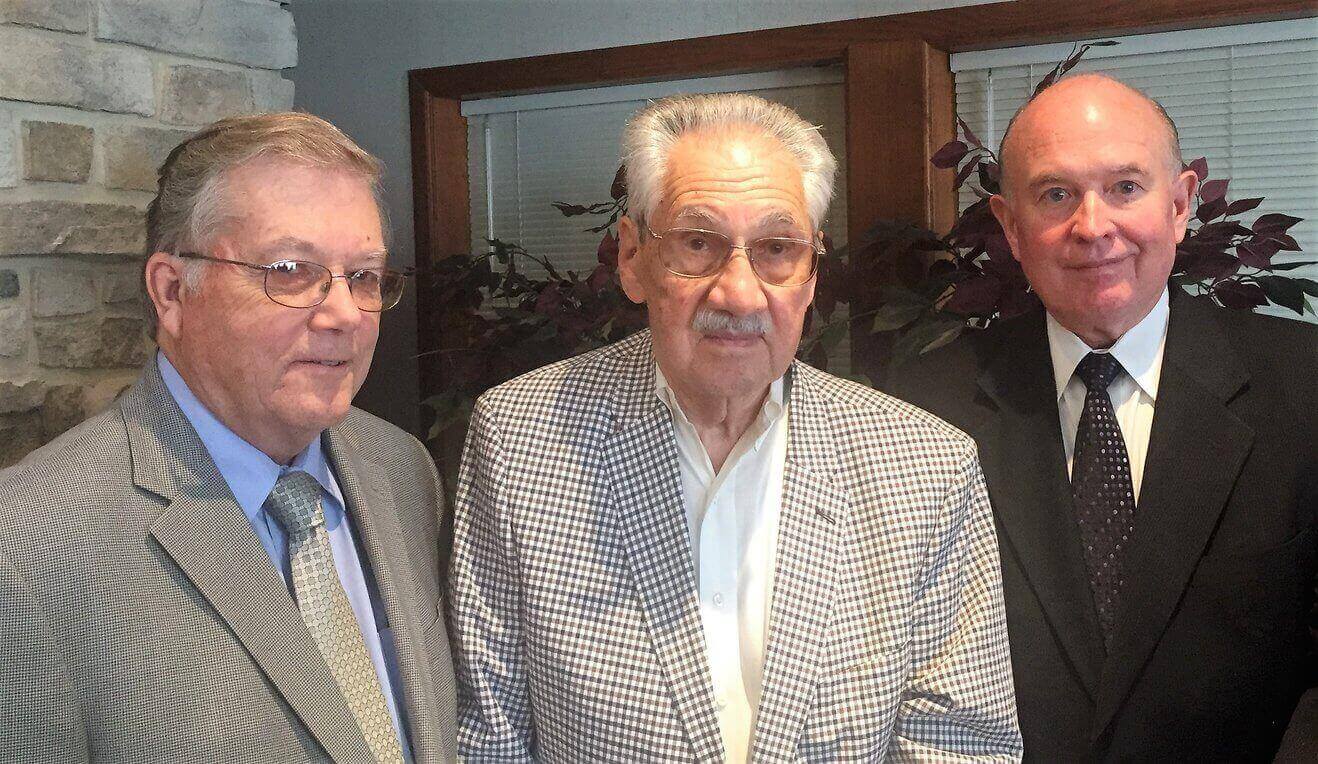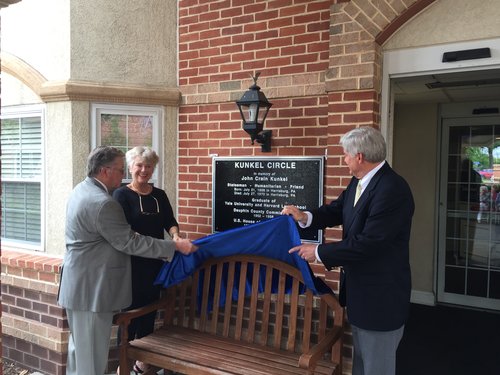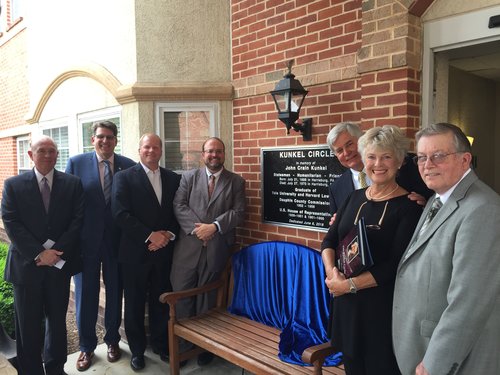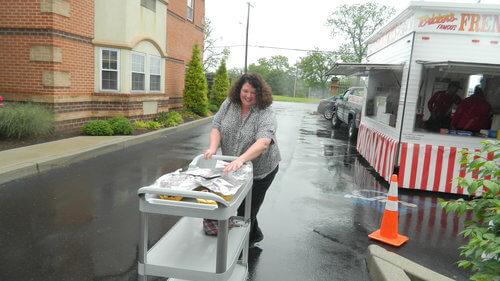Board of Managers member Alicelyn Sleber: Drawn to Homeland Center for its community impact

Alicelyn Sleber, member of the Board of Managers at Homeland.
Before she joined the Board of Managers, Alicelyn Watson Sleber knew Homeland Center well through her work in local social services and visits to fellow church members living here.
“I like that Homeland is in the community,” Alicelyn says. “They involve the community in their undertakings, and they give back to the community. It’s all part of life, and they afford that to the residents here. Homeland’s good reputation precedes it.”
Homeland, a CMS Five-Star Skilled Nursing Care Facility rating, Medicare’s highest citation, assures excellence in care. A unique, dual board structure provides this comprehensive foundation for the Harrisburg area’s premier continuing care community. While the Board of Trustees oversees policies and finances, the Board of Managers fosters Homeland’s home-like atmosphere, seeing to such “quality of life details” as fresh flowers on dining room tables, updated décor, and fun parties and picnics.
The Board of Managers is a good fit for Alicelyn’s nurturing nature. She is a retired psychologist and educator who has worked in private practice with her husband, Rick Sleber, and as special education teacher and administrator with the Harrisburg School District.
“I’ve always liked people,” she says. “I enjoy working with them.”
Her work in the Harrisburg schools put her in contact with students of varying ages. As a special education facilitator, she helped incarcerated youth stay on track to earning their degrees, so they wouldn’t lose educational momentum while in detention.
In her private practice in clinical psychology, Alicelyn continued to work within family systems, helping couples and children through difficult child custody cases, working with judges on adjudicating parenting conflicts, or evaluating youth in the county detention center.
Even before retiring, Alicelyn was a mainstay in community causes. She has served on boards and volunteered for Parents Anonymous and the YWCA of Greater Harrisburg. When it came time to choose a church, she went with Harrisburg’s venerable Pine Street Presbyterian Church so she could assist its Downtown Daily Bread ministry, which offers meals, shelter, and services for the hungry and homeless.
Seeking out a need and serving it seems ingrained in her DNA. Alicelyn grew up in Philipsburg, Pennsylvania, a small, coal-mining town in Centre County. Her mother, Bette Cole Watson, was an avid volunteer and a nurse who couldn’t be deterred by bad weather from her daily rounds to care for residents in the rural region.
“Not only would she go to see them, but her back seat would be filled with pieces of cake,” Alicelyn recalls. “She would take everybody a piece of cake.”
Alicelyn’s grandmother, Alice Cole, managed a restaurant in the Allentown area. The woman Alicelyn called “Baba” would help her employees find housing and manage their finances. Early in Alicelyn’s time working at a Harrisburg elementary school, “Baba” would knit mittens as Christmas gifts for her students, delivering them to Alicelyn with the instruction, “You be sure to give them some candy. No apples.”
With the Homeland Board of Managers, Alicelyn believes she can contribute her organizational and problem-solving skills, further enhancing Homeland’s “user-friendly approach” – and not solely for the benefit of residents.
“We’re here to support the staff,” she says. “We have an amazing staff here. They always work as a team. I’m amazed at how wonderfully they interact with each other.”
Since retiring in 2017, Alicelyn has filled her time with travel, family, and friends. She indulges her love of the beach at Marco Island, Florida, and Newport Beach, California. She has seen plays in New York. In the summertime, she hosts “Sleber Camp,” when her grown nieces visit to enjoy shopping, trips, and nature walks. The 2019 edition of “Sleber Camp” includes walking in the Homeland Hospice 5K and Memory Walk. The Memory Walk is a new feature offering non-runner a short course to stroll in memory or honor of loved ones.
Alicelyn said she joined Homeland’s Board of Managers because of the value that Homeland delivers to the community.
“I came here because it is Homeland, and because of its reputation,” she says. “I wanted to be affiliated with it and support the mission.”






 Kelly Lick first grew impressed with Homeland from the perspective of a family member. Her husband, prominent businessman and philanthropist C. Ted Lick, lived in Homeland’s Personal and Skilled care wings. With help from Homeland Hospice, he spent the last week of his life at home.
Kelly Lick first grew impressed with Homeland from the perspective of a family member. Her husband, prominent businessman and philanthropist C. Ted Lick, lived in Homeland’s Personal and Skilled care wings. With help from Homeland Hospice, he spent the last week of his life at home. Since 2004, Gail Siegel has served four, three-year terms on the Board of Trustees, Homeland’s policy-setting panel, providing guidance and oversight in operations and finances.
Since 2004, Gail Siegel has served four, three-year terms on the Board of Trustees, Homeland’s policy-setting panel, providing guidance and oversight in operations and finances.
